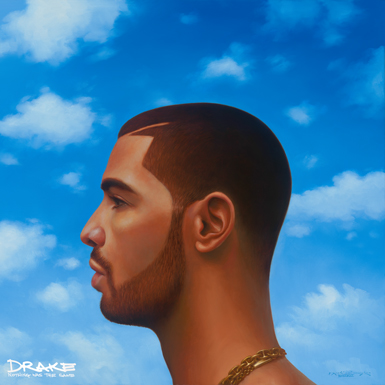Photo courtesy of spin.com
In Drake’s own words, “How much time is this [expletive] spending on an intro?”
A long time, apparently, because even after a week of listening to the leak of the rapper’s newest album Nothing Was The Same, I still can’t seem to get past the complexity of the fame-ridden artist’s fifteen-track CD to find the deeper meaning in his verses. I can only get so far as an introduction.
On the surface, Drake seems jaded and without the emotion he had in his previous records. He talks a lot about the fame, and the turmoil it brings to an artist, as if he’s a Canadian, half-white, bar-mitzvahed version of Kanye West. But in looking at his songs and comparing them to his earlier music, specifically his Grammy-nominated 2009 mixtape So Far Gone, the emotion is still there, just transformed with time, fame, intellect, and rationale. The whole album has become a continuation and the next step of what Drake was striving for in his earlier music.
The song that most exemplifies this growth is “Pound Cake/Paris Morton Music 2,” a two-part song that features “El Padre” himself (Jay Z) and is produced by veteran-Drake composer Boi-1da. The song is easily derived from two songs in Drake’s past – “Light Up” from his sophomore album Take Care, and, obviously, “Paris Morton Music,” a single that was a continuation of a Rick Ross’ hit with Chrisette Michelle. In both songs, Drake and Jay Z talk about their fame, with harsh metaphors that take a jab at opponent rappers without figuratively killing them.
The difference is that in “Light Up,” the pair seems depressed, harsh; they hold a title that requires work, disappointed, and distrust of people, unprecedented when they began their rap careers. In “Pound Cake,” their fame has become bourgeoisie – they rhyme with ease, talking about the dedication they have and how it’s all paid off for them, with Hov paying homage to the hypersexual Rihanna hit “Cake.” In this sense, the song is an evocation of what Drake was, and still is deep down, even with the veil of fame covering his words.
In both versions of “Paris Morton,” Drake talks to and about a girl from his past, Paris Morton. In the first version, he’s timid, and he’s insecure about the way they both feel about each other. His lyrics are partnered with a dark beat that accompanies the gloomy royalty the rapper was living in. In the second version, Drake lets his audience know that Paris still lives in his thoughts, but he’s been able to move on without her image hampering his relationship changes. The music is upbeat, letting the listeners know how far he has come, but that he is still the same in his emotions.
The second-to-last track on the album is the perfect song to conclude what his album’s message was. On “Too Much,” a single with English artist Sampha, Drake reminds himself not to overthink his self and persona. By overthinking, he changes how he comes off to people, and he wants to remind himself that what people see him as is not accurate. His fame, age, ego, and musical vibe has all changed on the surface – Nothing Was the Same is not a fitting title for his album, for if the listener tunes in closely to what Drake is saying, the traces of the same old Drizzy are still there.




































































































